The Female Farmer Project documents the rise of women in agriculture. We chronicle the stories of female farmers who are tasked with family, farm and often an outside job, and we are creating change in our food systems.
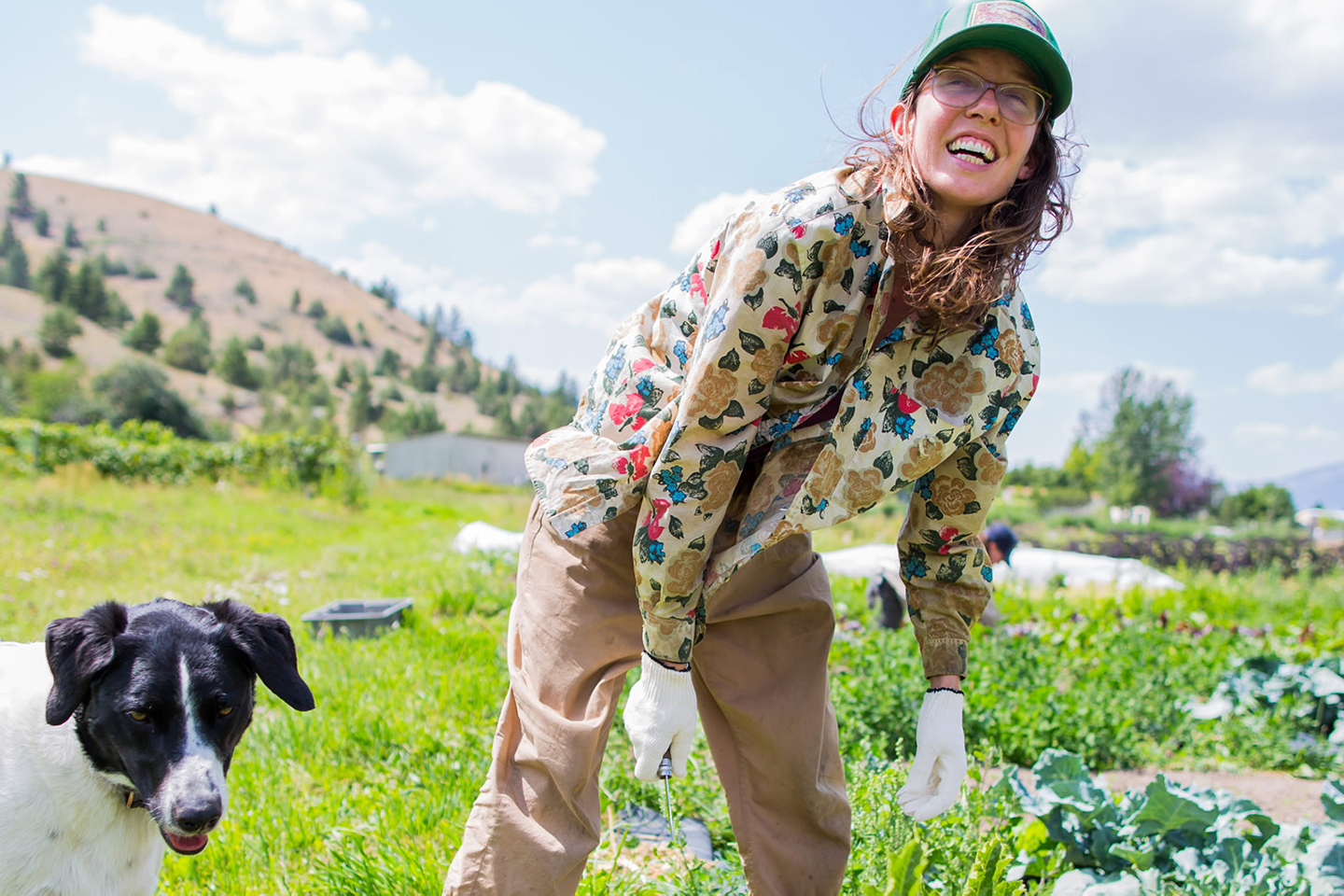
“The biggest impediment to women entering the field of farming unfortunately, is that there are a number of experienced farmers — male and female — who are unwilling to let women take initiative on the farm. I don’t mean running the farmers market or organizing the CSA, but allowing female interns to use large equipment, learn how to use the tractor, fix things. I find myself in this trap occasionally — being willing to let more confident and typically male individuals slip into typically ‘male’ roles, and I know many fellow farmers who experienced that kind of assumption as interns or employees.”
County Rail Farm is a small polyculture farm with organic vegetables and a small goat herd in Western Montana. Tracy Potter-Fins (not pictured) and Margaret DeBona are the owner-operators with their trusty farm dog Coda. They sell at two Missoula farmers markets and wholesale through the Western Montana Growers Co-op (which serves restaurants and grocery stores throughout Montana). They have a “FarmShare,” their version of a CSA — members buy credit at the market stand in the early months of the year. 2016 marks their sixth season farming in Montana.
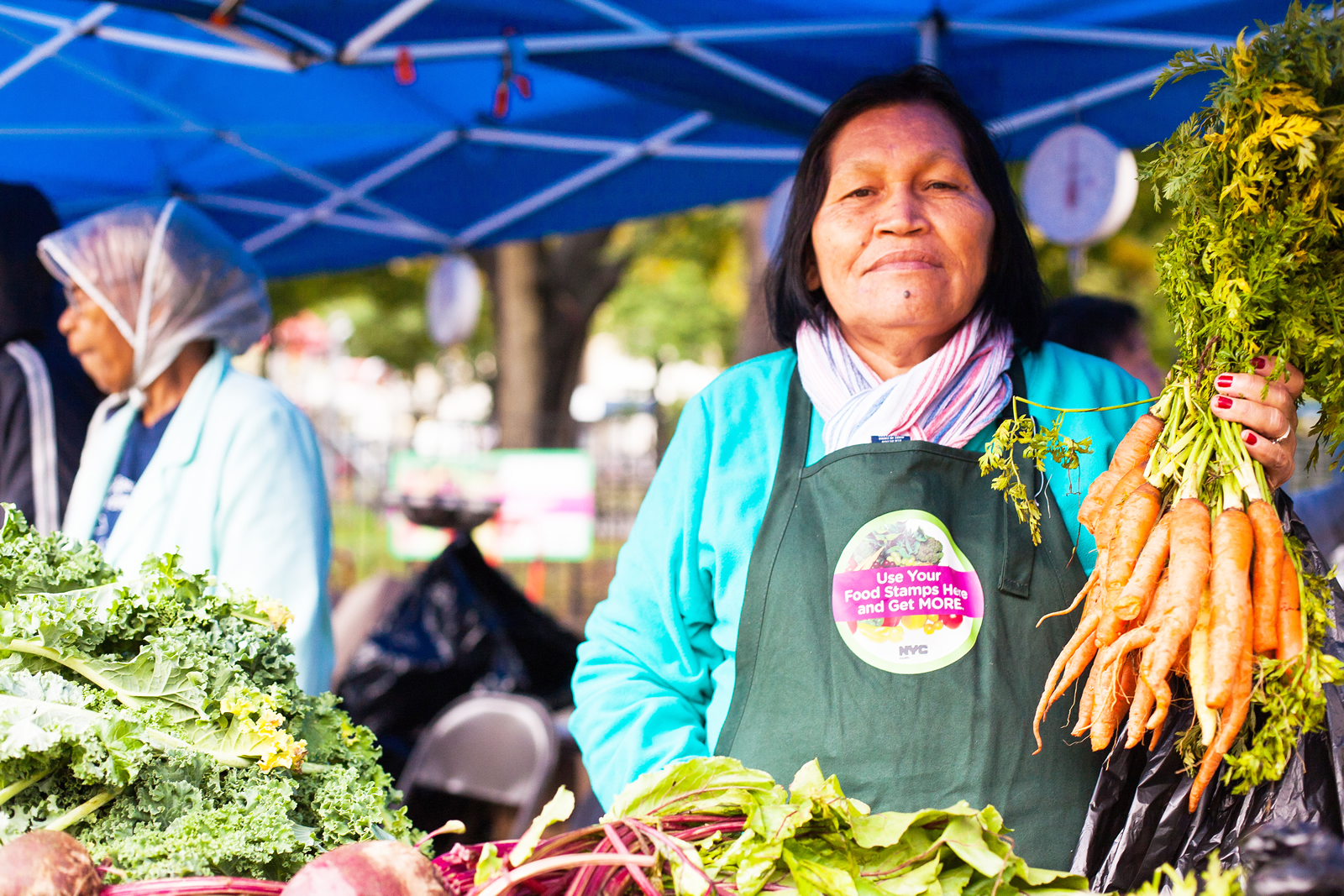
“Me gusta cultivar alimentos que me recuerda a mi casa en Honduras, y estoy agradecido por poder compartirlo con mis vecinos.”
“I like to grow food that reminds me of my home in Honduras, and I am grateful to be able to share it with my neighbors.”
Victoria is one of the many farmers who make up La Familia Verde Market. The farmers here grow food in urban gardens throughout the Bronx neighborhood. The weekly farmers market is in their community, run by community members and provides equal access to fresh produce to everyone.
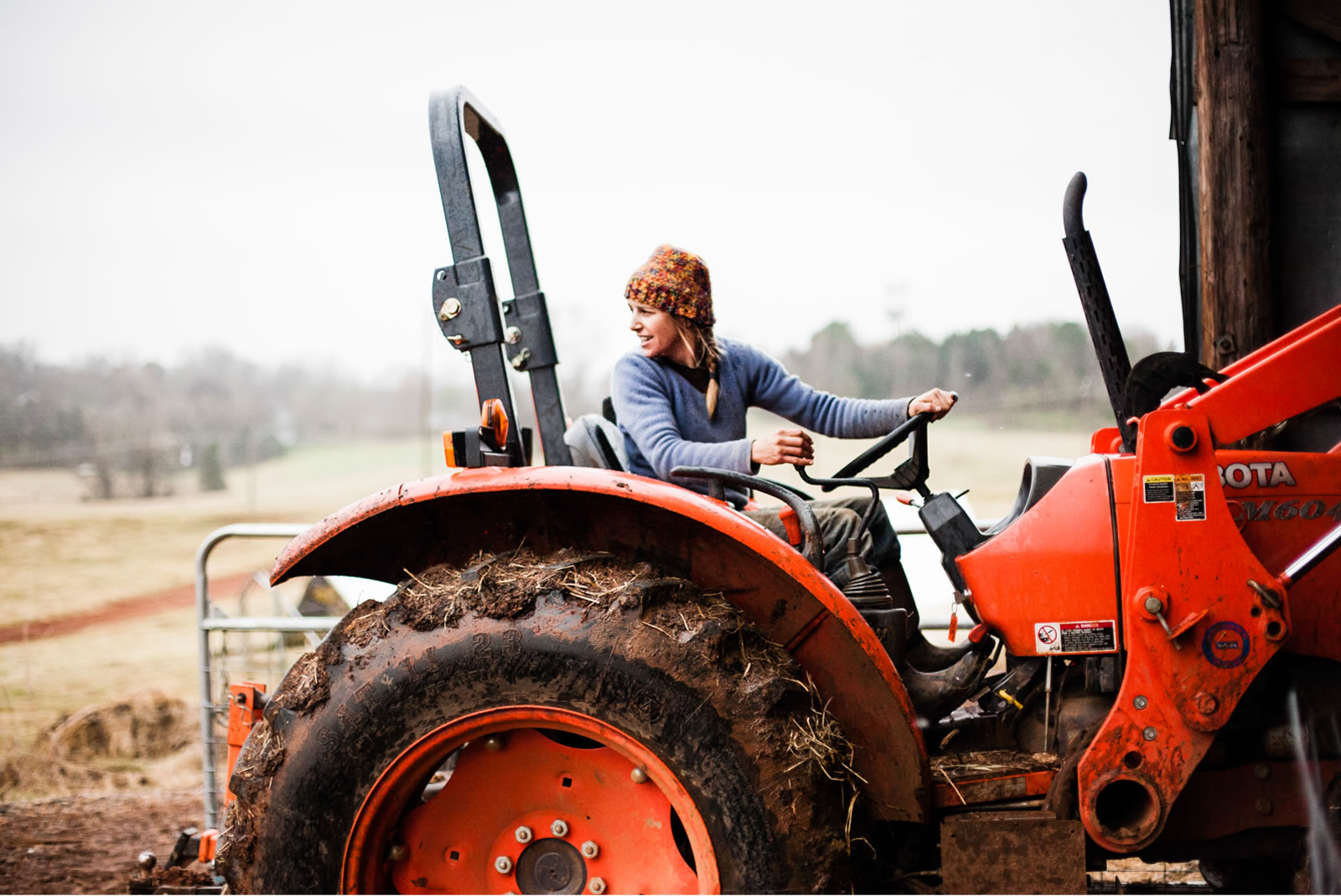
“We heal the land and ourselves with a daily devotion to wholeness in all that we do.”
Farming is a life that Suzanne approaches each day with as much careful thought, passion and energy as she did Capitol Hill days as a journalist. She now dedicates those ideas and ideals to changing the world one seed, one animal at a time. Haw River Ranch is a diversified, thriving polyculture where animals are treated with reverence and grace, earthworms are cherished and all critters eat a species-appropriate diet.
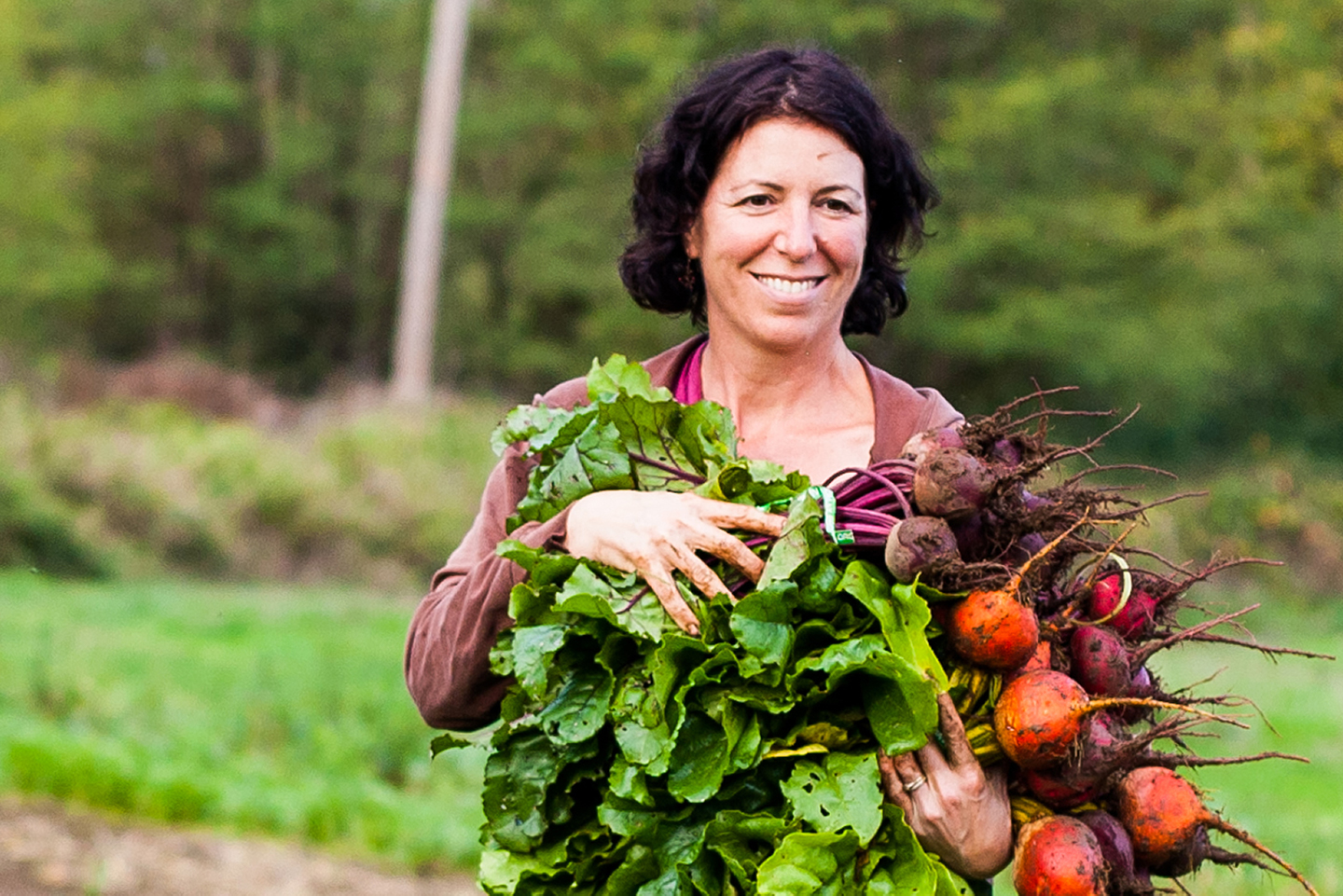
“When you buy not just local but direct from a farmer, you automatically give her a 40-60 percent raise.”
Together with Sue Ujcic and their respective families, Helsing Junction Farm has grown over the last 25 years from a 75-person CSA to over 1,000 shareholders, spanning from Portland to Seattle. Annie and Sue, who still operate the farm’s day-to-day operations, have uniquely funded all farm capitol improvements through their CSA program and keep their core farm staff on a year round salary.
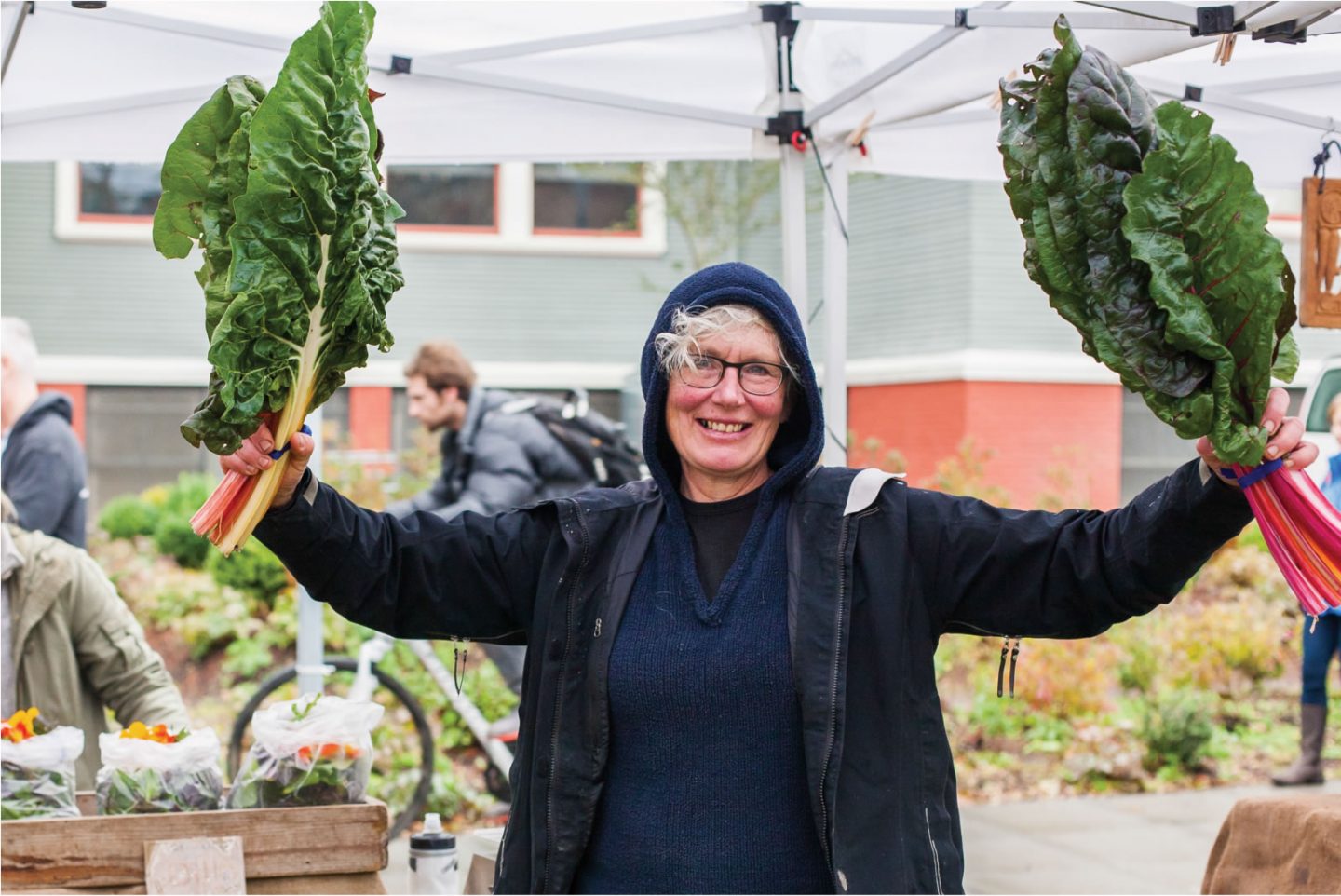
“What I wish people understood about farming is that we need to preserve our farmland and treat it as a natural resource just like we do with fish and animal habitat. A lot of people see farmland as potentially developed land, and we are losing more each day to not just development but to animal habitat, fish restoration projects, mitigation and others.”
Michaele is the owner/operator of a small polyculture farm in the heart of Snoqualmie Valley. She produces a wide variety of vegetables, berries and fruit. She has a laying flock, pastured meat birds and pastured pork. Her goats provided the milk for her value added product of goats milk soap, while the berries and fruit become her famous Gem Jam.
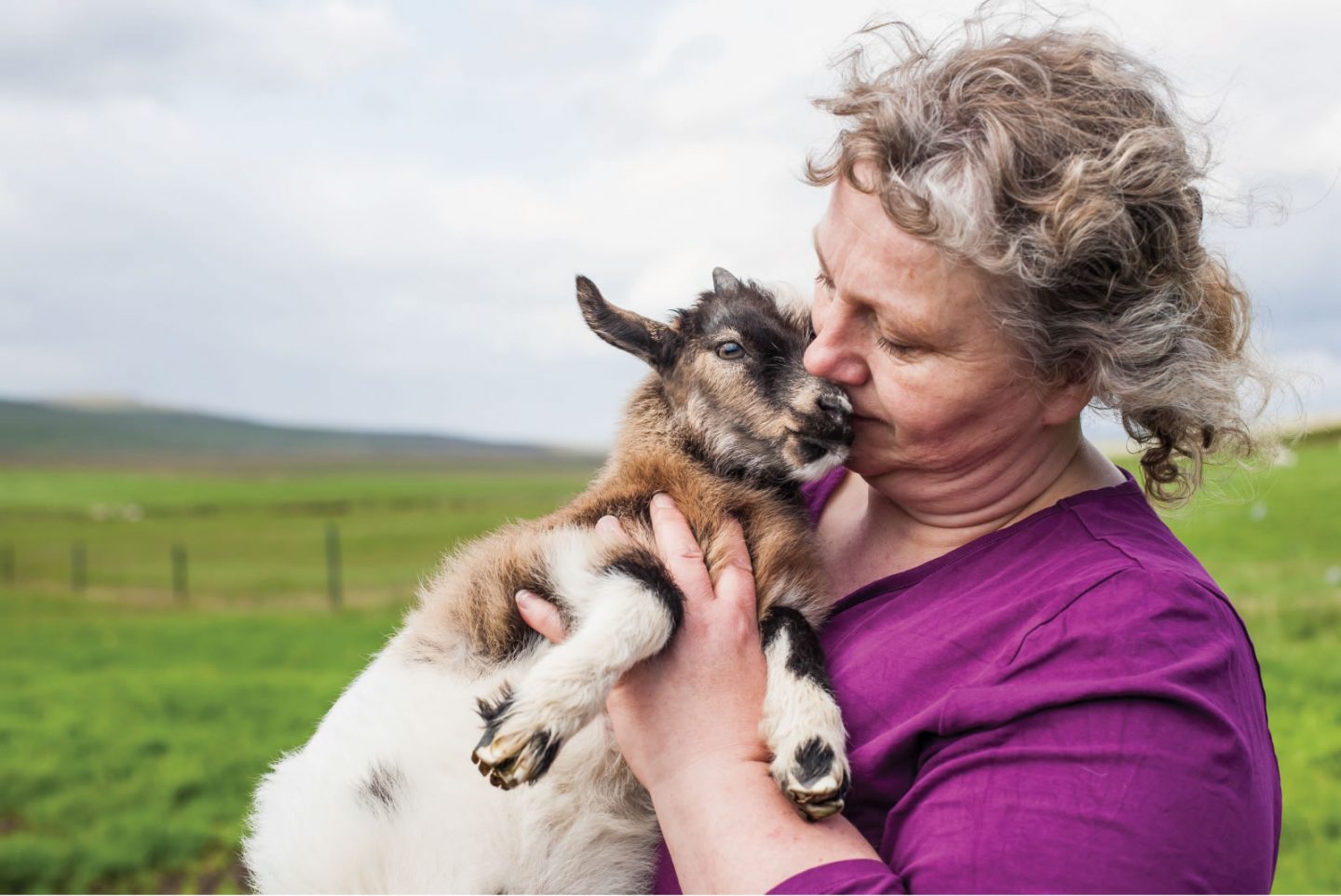
“Ég er mjög þakklát og glöð yfir að hafa fengið annað tækifæri til að halda áfram þessu hugsjónarstarfi mínu við að rækta upp íslenska geitastofninn. Á að vera hægt að bjarga dýrastofni í útrýmingarhættu þá verður að nýta hann og þær afurðir sem hann gefur.”
“I am very grateful and happy to have won another chance to continue the vision of my work to cultivate the Icelandic Breed of Goats. It should be possible to save the population of animals in danger of extinction and the products it provides.”
Jóhanna has the only Icelandic goat-breeding farm in the world. Háafell is home to 200 of the world’s 900 goats. In 2014, due to a debt to Icelandic banks, Johanna was in danger of losing her farm. A successful crowdfunding campaign in 2014 helped Johanna save her farm and allowed her to work towards the goal of building the first goat creamery in Iceland.



















